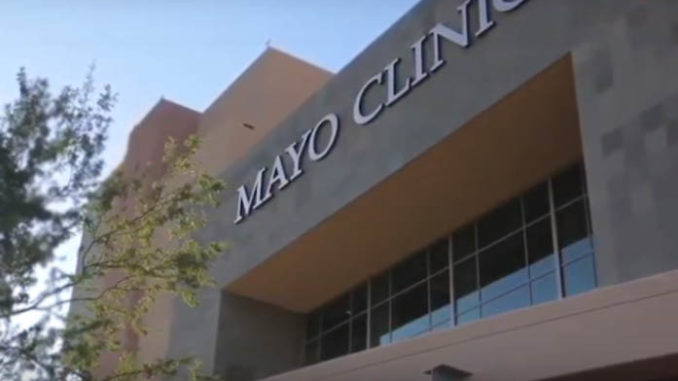
Non-English speakers can face big communication challenges in medical settings: being unable to convey personal information, understand medical jargon and follow treatment instructions. These challenges can result in misunderstandings, or worse, in misdiagnoses. Phoenix hospitals work at preventing problems like this by providing interpretation and translation services in many different languages.
About 2 million Arizonans speak a language other than English, according to U.S. Census Bureau data, although it is not clear how many would be considered non-English speakers. Over 1.3 million speak Spanish; more than 130,000 speak another Indo-European language; 150,000 speak an Asian or Pacific Island language; and 160,000 speak other languages.
Phoenix hospitals, including the Mayo Clinic, Valleywise Health, Abrazo Health and Banner Health, have established services for interpretation – for speech – and translation – for written communication – that can cover dozens of different languages. When a hospital’s language department is unable to directly provide interpretation and translation services, third-party providers – vendors and contractors – will step in.
Two medical professionals shared their experiences on how language services change health care accessibility for many underserved people who could fall through the cracks.
Banner Health Estrella – Elsa Perez
Elsa Perez is a Spanish-language medical interpreter at Banner Health Estrella. She knows the challenges a language barrier can present. She interpreted for her parents during doctor visits, speaking to them in Spanish and trying to answer questions health providers asked in English.
“It could be something as simple as, ‘Have you had a bowel movement?’ I don’t know what that was as a 10-, 11-year-old kid,” Perez said. Doctors would reword their questions, but it was still difficult to convey the message to her parents.
After a career working for the state, Perez looked into working in the medical field and found a position for a Spanish-language medical interpreter. “I thought, ‘Hey, I already know the language. I kind of already know what I’m doing,’” she said. She took classes and realized that she did not know Spanish well enough to do the job, saying that she spoke more “street Spanish” than “school Spanish.” She overcame that challenge.
As a Spanish-language medical interpreter, her work helps patients who don’t know English to understand the information doctors give. “It’s a great deal of help,” she said, “because they’re getting all the information, all their medication, all their diagnostics in their own language so they can understand.”
She still faces challenges. For example, she said people speak many different versions of Spanish: Mexican Spanish, Dominican Spanish, Puerto Rican Spanish, to name just a few. This can cause misunderstandings between medical staff and the patient.
“One little word can mean (something) totally different in Puerto Rico or Colombia,” she said.
She recalls a case when a diabetic patient’s sugar levels weren’t going down and doctors couldn’t understand why. He was doing everything by the book – he had a good diet, took his insulin and his medication. After two or three appointments, Perez realized that the patient, who was from Puerto Rico, was drinking about a gallon of orange juice a day. This wasn’t caught because he referred to orange juice as “green tea.”
Perez says interpreters and translators have to be ready for any situation.
Valleywise Health – Martha Martinez
Elsa Perez is a Spanish-language medical interpreter at Banner Health Estrella. She knows the challenges a language barrier can present. She interpreted for her parents during doctor visits, speaking to them in Spanish and trying to answer questions health providers asked in English.
“It could be something as simple as, ‘Have you had a bowel movement?’ I don’t know what that was as a 10-, 11-year-old kid,” Perez said. Doctors would reword their questions, but it was still difficult to convey the message to her parents.
After a career working for the state, Perez looked into working in the medical field and found a position for a Spanish-language medical interpreter. “I thought, ‘Hey, I already know the language. I kind of already know what I’m doing,’” she said. She took classes and realized that she did not know Spanish well enough to do the job, saying that she spoke more “street Spanish” than “school Spanish.” She overcame that challenge.
As a Spanish-language medical interpreter, her work helps patients who don’t know English to understand the information doctors give. “It’s a great deal of help,” she said, “because they’re getting all the information, all their medication, all their diagnostics in their own language so they can understand.”
She still faces challenges. For example, she said people speak many different versions of Spanish: Mexican Spanish, Dominican Spanish, Puerto Rican Spanish, to name just a few. This can cause misunderstandings between medical staff and the patient.
“One little word can mean (something) totally different in Puerto Rico or Colombia,” she said.
She recalls a case when a diabetic patient’s sugar levels weren’t going down and doctors couldn’t understand why. He was doing everything by the book – he had a good diet, took his insulin and his medication. After two or three appointments, Perez realized that the patient, who was from Puerto Rico, was drinking about a gallon of orange juice a day. This wasn’t caught because he referred to orange juice as “green tea.”
Perez says interpreters and translators have to be ready for any situation.
Valleywise Health – Martha Martinez

well who is paying for these ‘translators’? And now you know why medical cost are climbing as this is probably funded by the gov’t, and if not why your bills are so high. The promigrant groups should be the ones on the hook, not the hospital or taxpayers.
English speaking proficiency is required for legal immigrants! How about we close the borders for once and have more efficient means to accept immigrants!!! I’ll guess the majority of non-English speaking people are illegals.
But try and find an ASL interpreter, you will die looking.